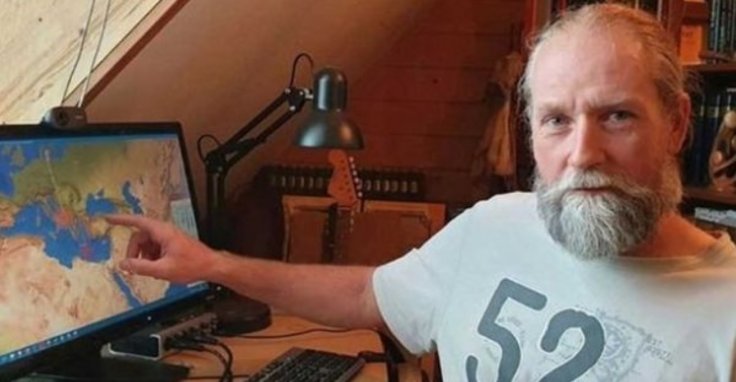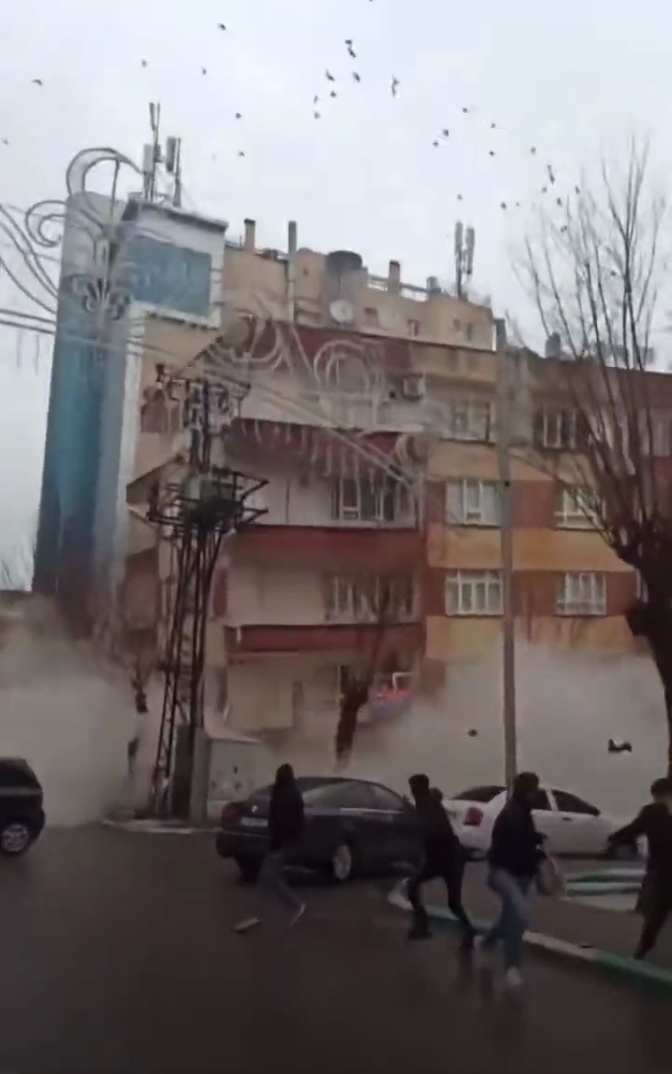The 7.8 magnitude earthquake that struck Turkey and Syria on Monday brought in utter devastation with, more than 19,000 already reported to have died. However, the massive loss of lives could have been avoided had different governments heeded a researcher's prediction.
Although geologists believe earthquakes can't be predicted, it is scary as well as surprising that a researcher was able to predict these powerful and devastating earthquakes three days in advance using his calculations. A Dutch researcher, Frank Hoogerbeets, had uncannily tweeted on February 3 that an earthquake would hit Turkey and Syria on Monday morning. His tweet has now not only gone viral but also sparked a debate on whether critical planetary geometry precedes such disasters.
Scary but Correct Prediction

On February 3, Hoogerbeets had tweeted, "Sooner or later there will be a ~M 7.5 #earthquake in this region (South-Central Turkey, Jordan, Syria, Lebanon)." Not many noticed his tweet till the 7.8 magnitude earthquake hit Turkey and Syria three days later in the early hours of Monday.
As nations work with the two countries to conduct rescue and reconstruction operations in extremely cold weather, several aftershocks continue to shake Turkey and neighboring Syria.
Hoogerbeets' tweet has since turned out to be prophetic and has sparked a debate on if such natural calamities can be predicted. Interestingly, Hoogerbeets is neither an astrologer nor a seer. He is a researcher and geologist.
So, what other geologists have so long been denying, has been proved wrong by Hoogerbeets. Frank Hoogerbeets is a researcher with an institute called Solar System Geometry Survey (SSGOES).
SSGEOS had also tweeted on 2 February: "Larger seismic activity may occur from 4-6 February, most likely up to mid or high 6 altitude."

In the video attached with the tweet, Hoogerbeets speaks about "two lunar peaks that could potentially trigger some serious seismic activity... overall, because we have planetary peaks on the 4th and the 5th, my estimate is that we could see some seismic increase from the 4th to the 6th... that would be something to keep in mind".
He also went on to say that "there is a possibility of a larger seismic activity following the next lunar peak on 6th February..."
However, he didn't stop there.
His Shocking Prophecy
Hours after the earthquake struck, Hoogerbeets took to Twitter again. This time he wrote: "... As I stated earlier, sooner or later this would happen in this region, similar to the years 115 and 526. These earthquakes are always preceded by critical planetary geometry, as we had on 4-5 Feb."

The two tweets received multiple responses, with many also disagreeing with Hoogerbeets. "There is always a chance for earthquakes in places with active faults, but specific forecasts perform no better than random when tested. Claims of correlation with planetary alignment have been disproven," one user wrote.
The geologist, however, didn't get annoyed and replied to the tweet saying, ""Yes, there is much resistance within the scientific community regarding the influence of the planets and the Moon. But there's no extended research that 'disproves' it."

On the other hand, many have started believing him to be a modern-day Nostradamus. But Hoogerbeets calls himself just a geologist and researcher.
According to Hoogerbeets' bio, he works as a researcher with the Solar System Geometry Survey, which is a study center " for monitoring geometry between celestial bodies related to seismic activity," according to its website.
Despite not having a science degree, the man is passionate about the field and frequently forecasts potential earthquakes.

However, despite the accuracy with which Hoogerbeets predicted the earthquake, the U.S. Geological Survey remains univocal.
"We do not know how, and we do not expect to know how any time in the foreseeable future," the agency says. "USGS scientists can only calculate the probability that a significant earthquake will occur (shown on our hazard mapping) in a specific area within a certain number of years."
The USGS urges people to consider the three elements that would make up a genuine and accurate earthquake prediction: a date and time, a location and a magnitude. However, Hoogerbeets' warning of a quake hitting "sooner or later" falls well short of the first requirement.








